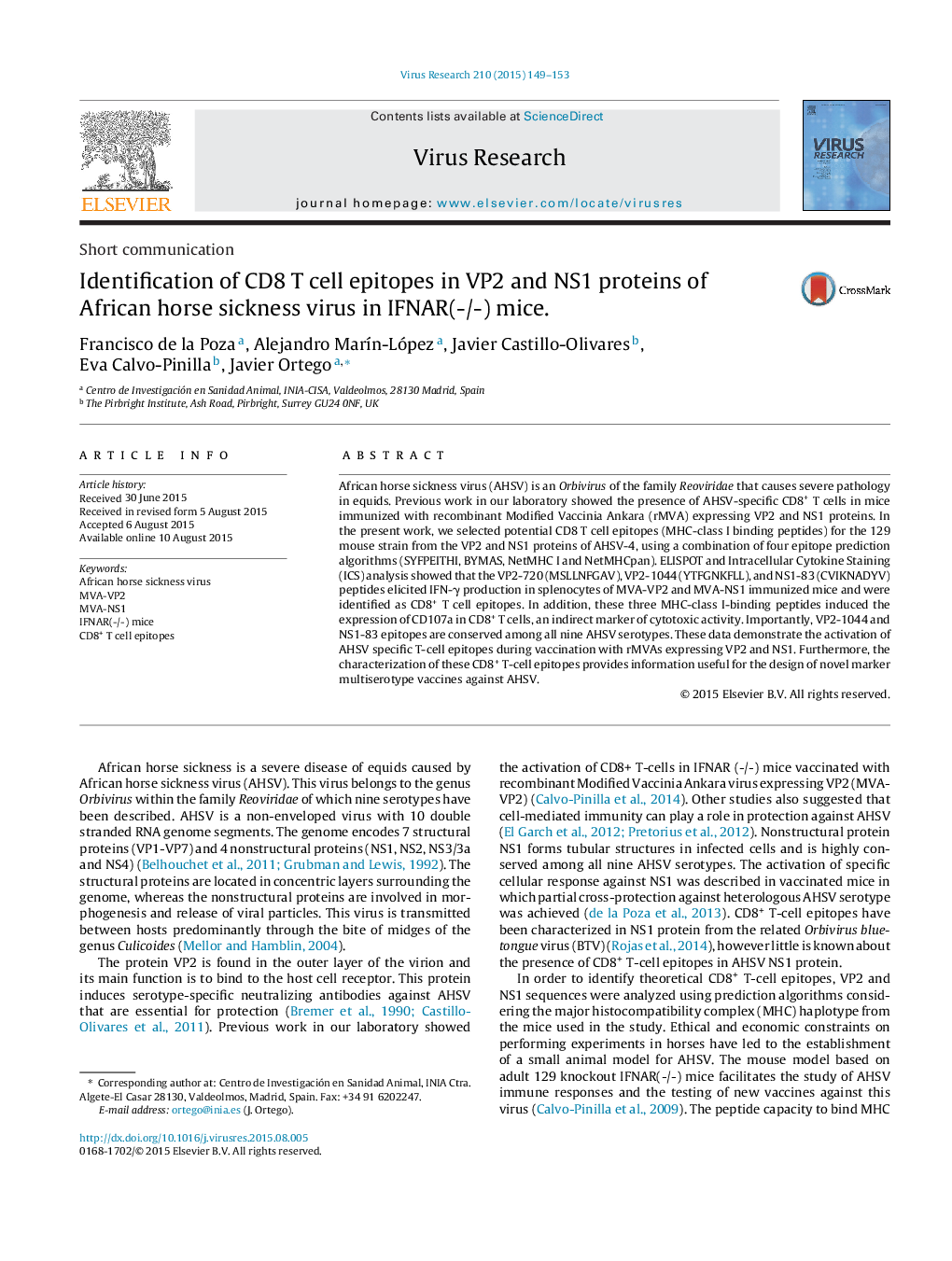| Article ID | Journal | Published Year | Pages | File Type |
|---|---|---|---|---|
| 3428047 | Virus Research | 2015 | 5 Pages |
•Two peptides of AHSV-VP2, and one of AHSV-NS1 are identified as CD8+ T cell epitopes.•These peptides induced the cytotoxicity marker CD107a in CD8+ T cells.•VP2-1044 and NS1-83 epitopes are conserved among all nine AHSV serotypes.
African horse sickness virus (AHSV) is an Orbivirus of the family Reoviridae that causes severe pathology in equids. Previous work in our laboratory showed the presence of AHSV-specific CD8+ T cells in mice immunized with recombinant Modified Vaccinia Ankara (rMVA) expressing VP2 and NS1 proteins. In the present work, we selected potential CD8 T cell epitopes (MHC-class I binding peptides) for the 129 mouse strain from the VP2 and NS1 proteins of AHSV-4, using a combination of four epitope prediction algorithms (SYFPEITHI, BYMAS, NetMHC I and NetMHCpan). ELISPOT and Intracellular Cytokine Staining (ICS) analysis showed that the VP2-720 (MSLLNFGAV), VP2-1044 (YTFGNKFLL), and NS1-83 (CVIKNADYV) peptides elicited IFN-γ production in splenocytes of MVA-VP2 and MVA-NS1 immunized mice and were identified as CD8+ T cell epitopes. In addition, these three MHC-class I-binding peptides induced the expression of CD107a in CD8+ T cells, an indirect marker of cytotoxic activity. Importantly, VP2-1044 and NS1-83 epitopes are conserved among all nine AHSV serotypes. These data demonstrate the activation of AHSV specific T-cell epitopes during vaccination with rMVAs expressing VP2 and NS1. Furthermore, the characterization of these CD8+ T-cell epitopes provides information useful for the design of novel marker multiserotype vaccines against AHSV.
